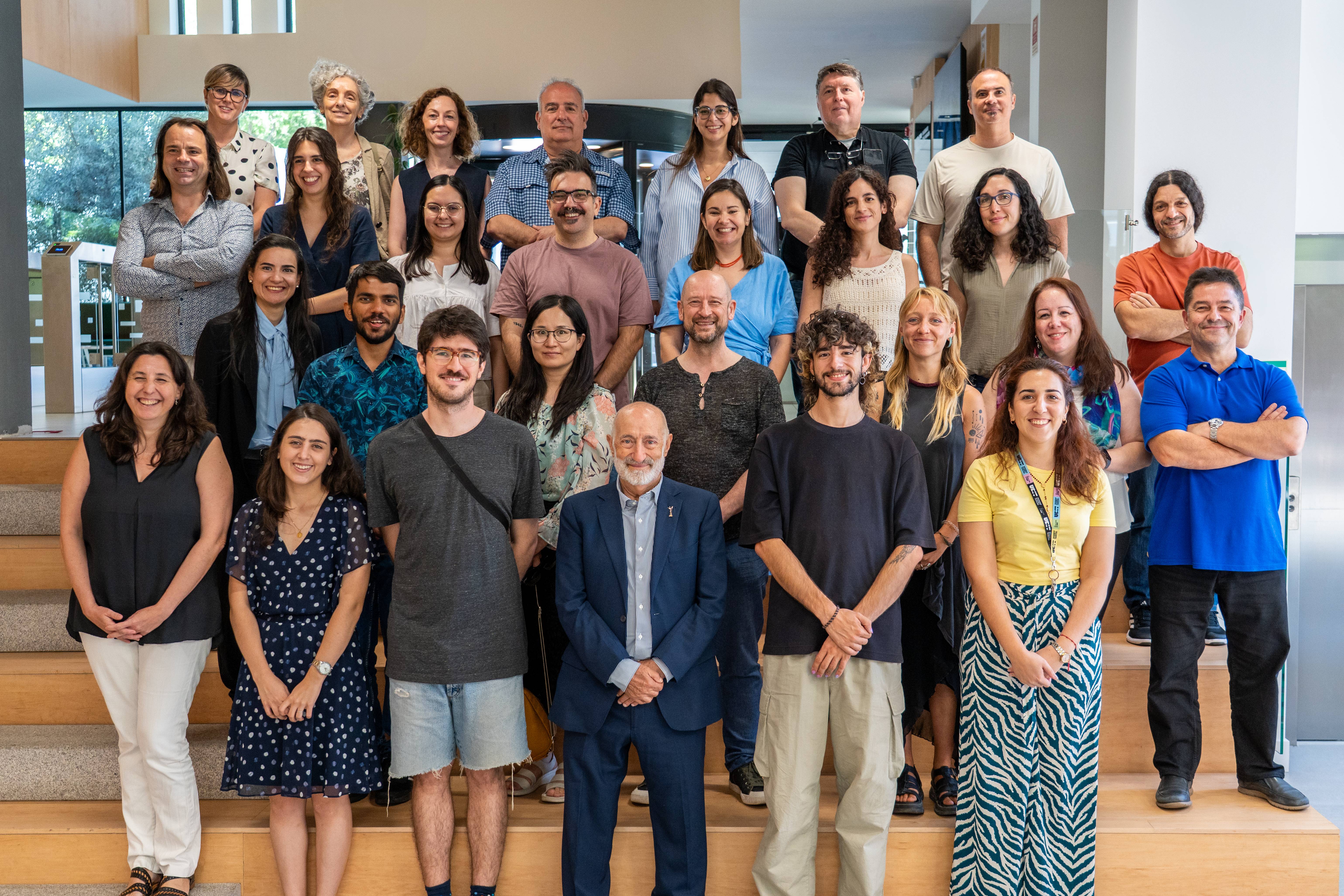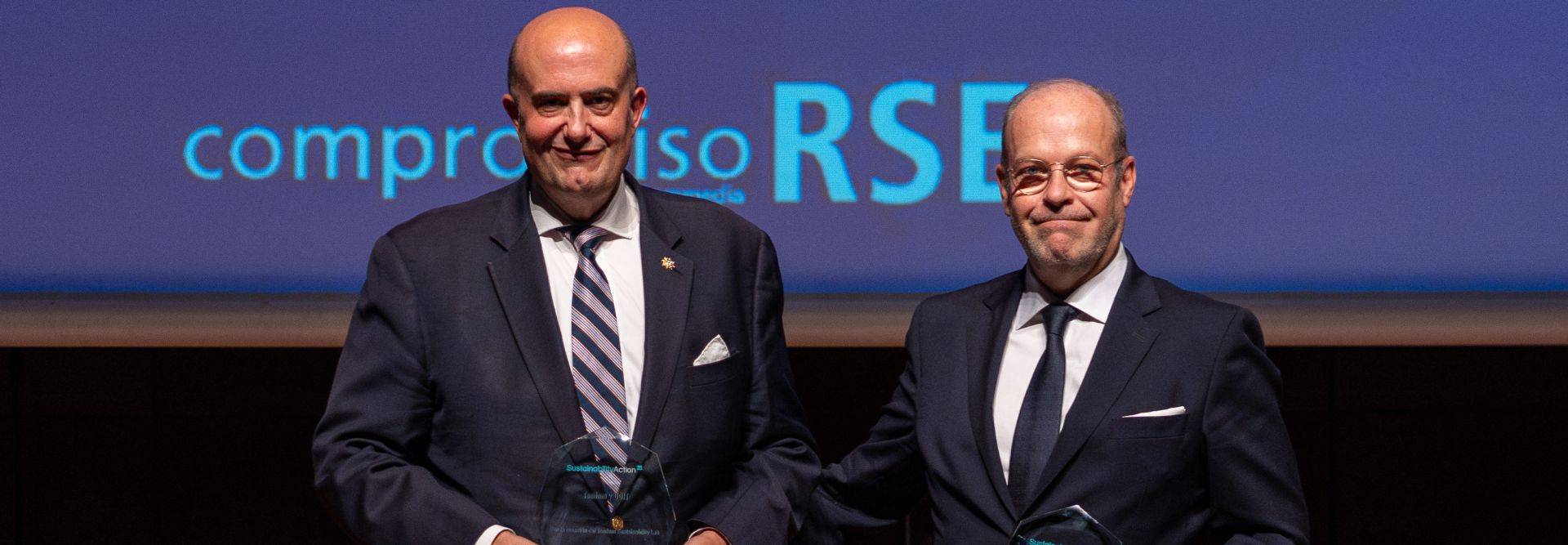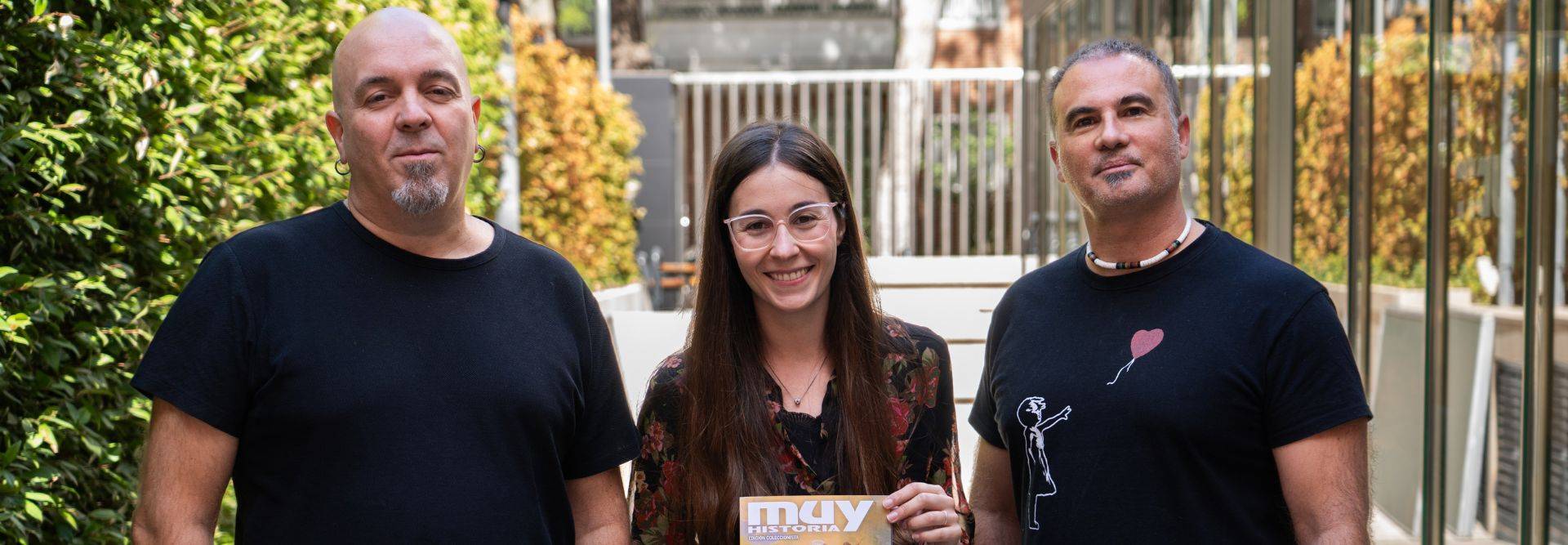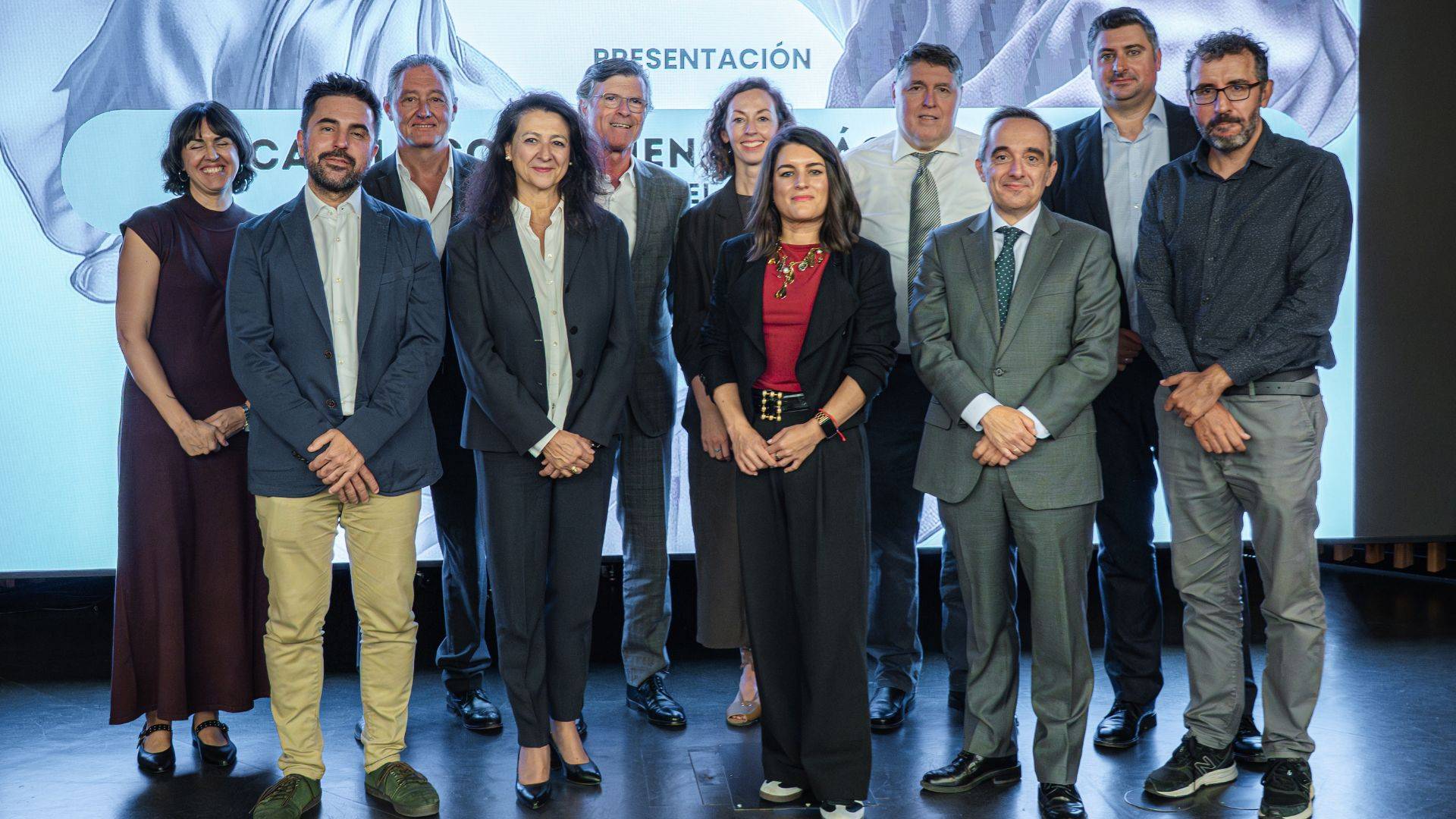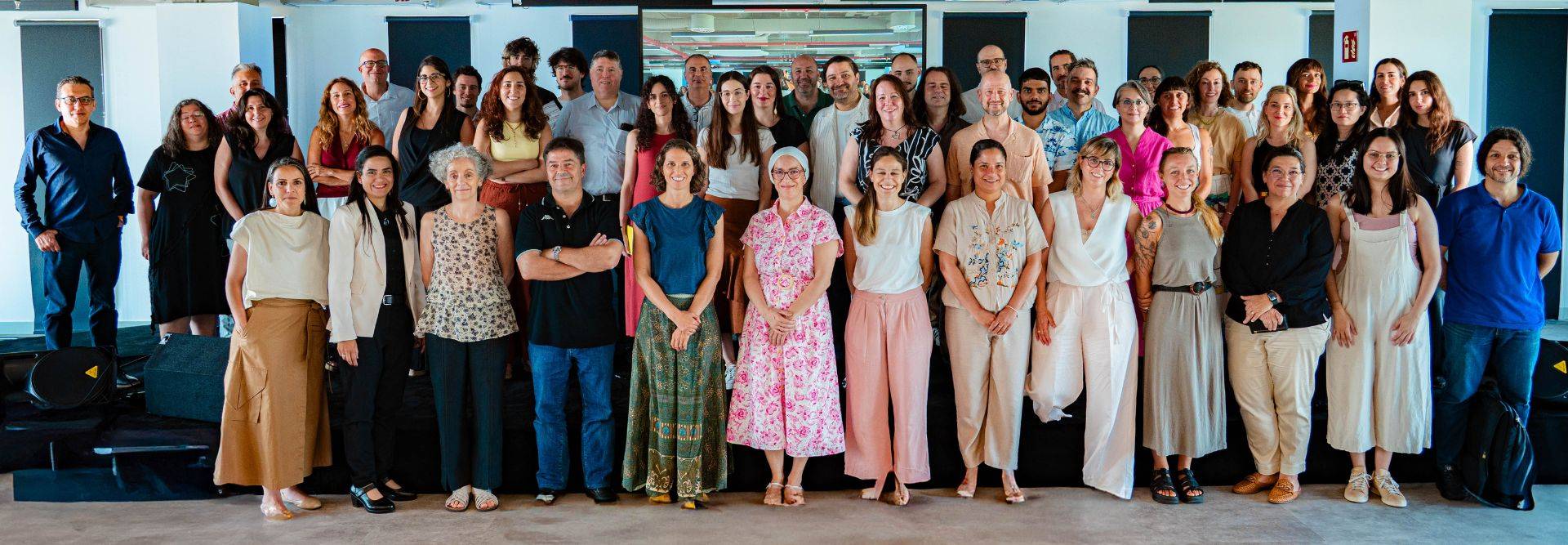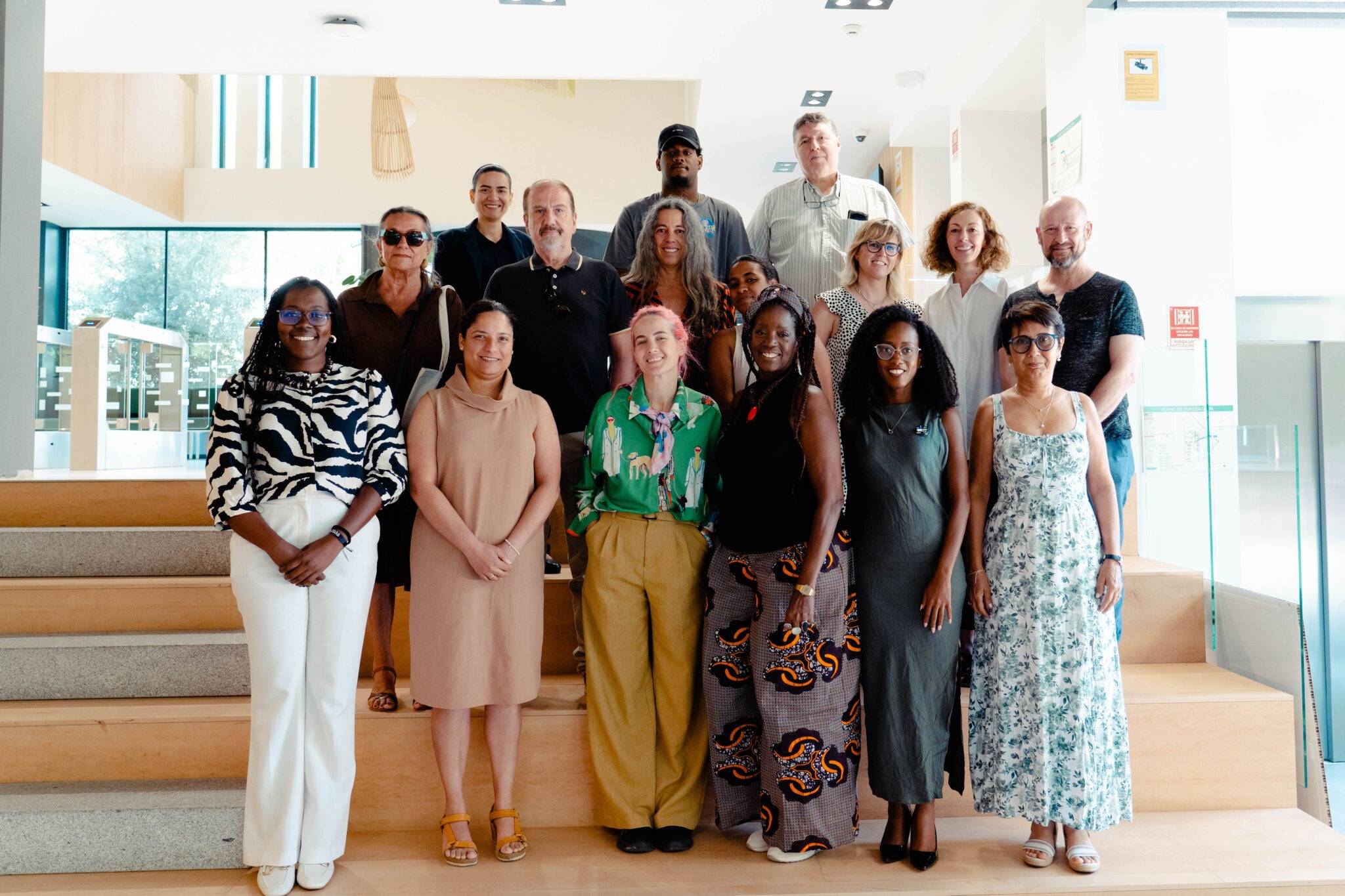First Inter-University Doctoral Conference at UDIT: a space to think about the future from the research perspective
The Doctoral School, in collaboration with the Vice-Rectorate for Research, successfully held the First Inter-University Doctoral Conference at UDIT, a pioneering initiative that has become an institutional milestone for scientific dissemination, critical reflection and the strengthening of research capacities in the academic environment of the university.
During the event, advances in doctoral theses developed by researchers linked to different research groups at UDIT, who are currently pursuing their doctoral studies at leading national and international universities, were shared. This space allowed for an enriching dialogue between disciplines, methodologies and approaches that address contemporary challenges in the fields of design, technology, art and society.
The event was attended by the Vice-Rector for Research, José Luis Olazagoitia, and the director of the Doctoral School, Francisco García, as well as the participation of teachers, researchers and representatives of all UDIT's research groups. A total of eight doctoral researchers presented the progress of their research, creating an environment conducive to the exchange of ideas, constructive criticism and the socialisation of knowledge.
These conferences are not only a high-level academic exercise, but also respond to the objectives of Royal Decree 99/2011, which promotes seminars and training activities for doctoral students, in line with the principles of open science and knowledge as a common good.
"Support for research at UDIT is a cornerstone. Therefore, this initiative allows us to show how the development of great ideas is supported by the collaboration with thesis supervisors and research groups equipped with resources and protocols that guarantee the progress of strategic lines for the university," said Vice-Chancellor José Luis Olazagoitia.
The first five speakers are part of doctoral programmes at external universities and are currently incorporated into UDIT research groups as part of pre-doctoral stays. Alberto Calderón, a member of the VERSUS group and doctoral student at the ETSAM (Universidad Politécnica de Madrid), presented his research "Interstiticios [des]conectados: análisis de la infraestructura físico-virtual de Internet y sus alternativas descentralizadas", a critical look at digital networks and their emerging possibilities. Also in the VERSUS group, Enrique Villamuelas García presented "Cartography of socio-spatial controversies of machine learning algorithms", making visible the urban and social impact of artificial intelligence in the configuration of spaces. From a bio-inspired design approach, Rosa María Barrero, also linked to VERSUS, presented "AI as a proposal for the creative process of design inspired by nature", a proposal that explores the collaboration between human, artificial and natural intelligence for sustainable architecture. Both Villamuelas and Barrero are working on their theses at the Polytechnic University of Madrid.
Sahonal Anross, a member of the GUMPS group, shared his research "Smart textiles and mental health", which focuses on the potential of smart textiles to improve mental health, a thesis he is working on at the Universidad Politécnica de Madrid. Elsa Gil, member of the DESIRE group, presented "Micodesign: meaning and significance for its projection through design and art", an exploration of biomaterials from aesthetic and ecological perspectives, within the framework of her PhD at the Complutense University of Madrid.
The second block of talks was dedicated to UDIT researchers and lecturers who are working on their doctoral theses at other university institutions. Fernando Blázquez, from the ECSIT group, presented "Development of a professionalising virtual environment within the field of Psychobiology", an ongoing project at the University of Nebrija that seeks to transform teaching through interactive digital laboratories. Sandra Garrido, also from ECSIT, presented "Boosting a comprehensive analysis of Brain Networks", research that applies Graph Neural Networks to detect early neurodegenerative diseases, developed within the framework of the PhD at the Universitat Oberta de Catalunya.
Alberto Ramos, researcher and lecturer at UDIT, closed the event with his research "On the characterization and study of textile manufacturing processes for producing sensorized garments using textile friendly methods", a doctoral thesis in progress at the University of Borås. His work demonstrates how the integration of sensors into garments can be realised with minimal modification of conventional textile machinery, with promising applications for the sports and industrial sector.
"Imperfection is the non-existent. That is why I encourage you to always dare to create, without fear of making mistakes, to propose new ideas and to work with passion," concluded Francisco García, director of the Doctoral School.
The research presented reflects the transformative potential of applied science and consolidates UDIT's commitment to research with a social and international impact, open to interdisciplinary dialogue and inter-university cooperation.

